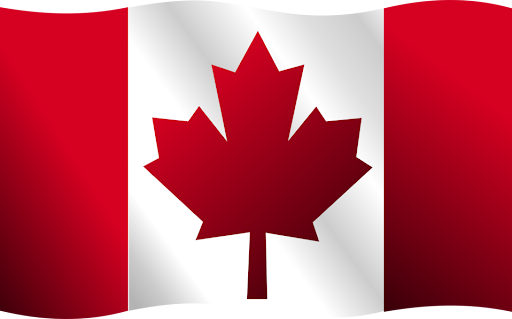
- Details
- By Neely Bardwell
During a Super Bowl preshow interview on Fox News, President Donald Trump told host Bret Baier that discussions of annexing Canada are “a real thing.”
“I think Canada would be much better off as the 51st state because we lose $200 billion a year with Canada. And I’m not going to let that happen,” Trump said. “Why are we paying $200 billion a year, essentially a subsidy to Canada?”
The tariff war with Canada has intensiified his belief Canada should become annexed with the United States.
“The only thing that makes sense is for Canada to become our cherished Fifty First State,” Mr. Trump wrote on social media. “This would make all Tariffs, and everything else, totally disappear. Canadians taxes will be very substantially reduced, they will be more secure, militarily and otherwise, than ever before, there would no longer be a Northern Border problem.”
Canadian officials have pushed back against Trump’s comments. Prime Minister-designate Mark Carney, who is set to succeed Justin Trudeau, firmly rejected the idea in his first speech after winning the leadership race.
The Confederacy of Treaty No. 6 First Nations are also pushing back on Trump's idea in a statement. In response, Grand Chief Greg Desjarlais emphasized the sovereignty of Indigenous lands.
“The U.S.’s insistence on referring to our land as the 51st State is offensive and wrong. As Grand Chief of the Confederacy of Treaty No. 6 First Nations, I remind our southern neighbours that Canada is on Treaty Land. Our First Nations are sovereign Nations with Treaty Rights forever; we stand against U.S. aggression,” the statement reads. "Canada is on Treaty Land," Desjarlais said.
“As the cost of living increases due to U.S. uncertainty for both Indigenous and non-Indigenous communities, we must all come together in unity, strength and leadership. Through cooperation and adherence to Treaty, we can break away from U.S. dependency and foster relationships here at home and in markets abroad — all with Indigenous Peoples and the next seven generations in mind."
More Stories Like This
Native News Weekly (August 25, 2024): D.C. BriefsUS Presidents in Their Own Words Concerning American Indians
Oral History Project Announces 14th Stop in Portland, Oregon: NABS Continues to Gather Crucial Stories Across Indian Country
Next on Native Bidaské: Telling the Untold Native Stories of the American Revolution
Native American Nearly Deported After Polk County jail Issues ICE Detainer by Mistake
Help us tell the stories that could save Native languages and food traditions
At a critical moment for Indian Country, Native News Online is embarking on our most ambitious reporting project yet: "Cultivating Culture," a three-year investigation into two forces shaping Native community survival—food sovereignty and language revitalization.
The devastating impact of COVID-19 accelerated the loss of Native elders and with them, irreplaceable cultural knowledge. Yet across tribal communities, innovative leaders are fighting back, reclaiming traditional food systems and breathing new life into Native languages. These aren't just cultural preservation efforts—they're powerful pathways to community health, healing, and resilience.
Our dedicated reporting team will spend three years documenting these stories through on-the-ground reporting in 18 tribal communities, producing over 200 in-depth stories, 18 podcast episodes, and multimedia content that amplifies Indigenous voices. We'll show policymakers, funders, and allies how cultural restoration directly impacts physical and mental wellness while celebrating successful models of sovereignty and self-determination.
This isn't corporate media parachuting into Indian Country for a quick story. This is sustained, relationship-based journalism by Native reporters who understand these communities. It's "Warrior Journalism"—fearless reporting that serves the 5.5 million readers who depend on us for news that mainstream media often ignores.
We need your help right now. While we've secured partial funding, we're still $450,000 short of our three-year budget. Our immediate goal is $25,000 this month to keep this critical work moving forward—funding reporter salaries, travel to remote communities, photography, and the deep reporting these stories deserve.
Every dollar directly supports Indigenous journalists telling Indigenous stories. Whether it's $5 or $50, your contribution ensures these vital narratives of resilience, innovation, and hope don't disappear into silence.
 The stakes couldn't be higher. Native languages are being lost at an alarming rate. Food insecurity plagues many tribal communities. But solutions are emerging, and these stories need to be told.
The stakes couldn't be higher. Native languages are being lost at an alarming rate. Food insecurity plagues many tribal communities. But solutions are emerging, and these stories need to be told.
Support independent Native journalism. Fund the stories that matter.
Levi Rickert (Potawatomi), Editor & Publisher

